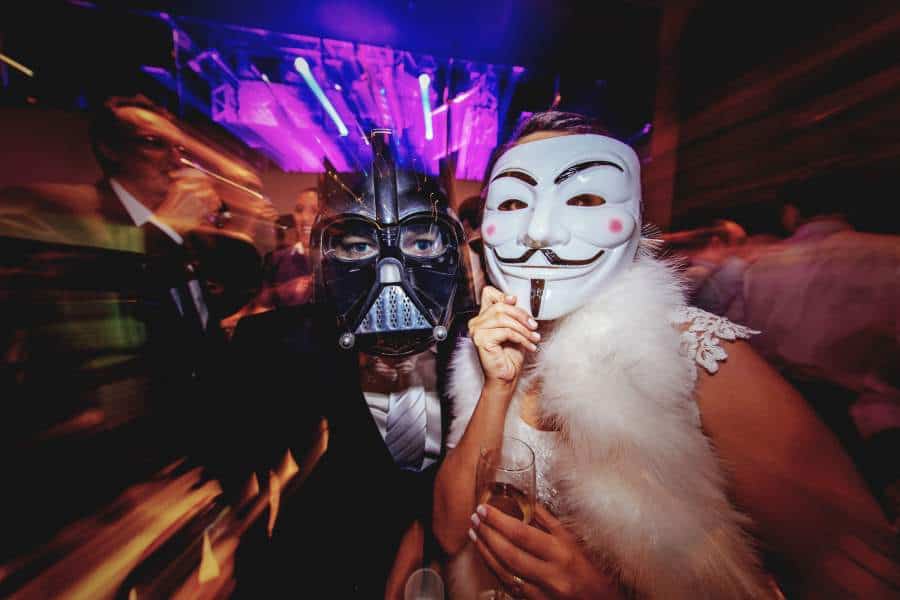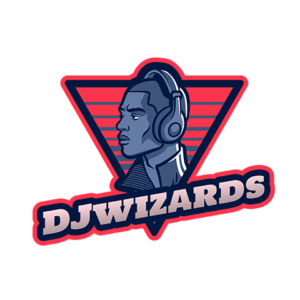
DJ-ing is a great way to earn some cash on the side or in some cases, make a lucrative career and become a famous superstar! But do you need to get licensed first?
The short answer is, NO. The four main music licensing companies do not require DJs to have a license for playing at private events like weddings or birthday parties.
Once you’ve taught yourself to DJ you might want to start taking on gigs at weddings or other events to earn some extra income and cover the costs of your equipment. You may even find this is a good career choice and decide to keep doing it permanently
However, this means you are technically operating a business as a private company, freelancer or sole proprietor – so what are the legal requirements? Do you need a license to play music at a wedding or similar event?
However, if you ever intend to upgrade and play at bigger public events that sell tickets or otherwise make a profit, you will need to get professionally licensed. There are several international licensing bodies that cover the rights of musicians and provide legal means for DJs to play other people’s music.
Licencing Bodies
The main licensing bodies for music are part of the Performing Rights Organizations (PROS) and consist of the American Society of Composers, Authors, and Publishers (ASCAP), Broadcast Music Inc (BMI), PRS for Music Ltd (PRS), and SESAC.
Other smaller but equally as important licensing bodies for music around the world include the Society of Composers, Authors and Music Publishers Canada (SOCAN), Australasian Performing Rights Association (APRA), Australasian Mechanical Copyright Owners Society Limited (AMCOS), Gesellschaft fur musikalische Aufführungs- und mechanische Vervielfältigungsrechte (GEMA), and Public Performance Licensing (PPL).
These bodies are vital to ensuring that musicians, singers, and songwriters receive the money that they deserve for their art. The bodies were formed to collect royalties whenever an artist’s copyrighted music is performed and help to tackle piracy and other copyright issues.
ASCAP does not license DJs but rather venues, establishments or promoters and only requires licenses if it’s a public event. That would be any gig or live performance at a festival or other event where members of the public would pay to attend.
BMI licenses the ‘public performance’ of music, so DJs playing any public gig would be required to get a BMI performance license. However, like ASCAP, BMI does not require DJs to be licensed for playing private events like weddings.
PRS for Music is an artist royalty licensing firm. It does not charge DJs if playing music at private events that require an invitation, are held in privately-booked venues, have no charge, and are not-for-profit.
SESAC is another company that collects royalty fees from DJs and musicians that perform other people’s music. Again, this is only necessary for music played in public and not at private events.
Licencing Laws per country
Depending on which country you are in, the licensing laws may differ so it’s important to check up the regulations for where you live.
However, most music is released and licensed globally so the most important thing is whether or not you are licensed internationally to play other artist’s music.
In the United States, private events like weddings are either royalty-free or have licenses arranged by the organizer, so you will not need to get a license as a DJ. At public venues like clubs, bars or restaurants, the venue is responsible for organizing the necessary licenses for the performance of music.
As a DJ, playing at a bar or club, you will almost always be covered by the venue’s license but it’s not a bad idea to check first.
Working as a Mobile DJ
If you are working as a mobile DJ and renting yourself and your equipment out to freelance gigs around the country, you may need to look into certain licensing.
As a mobile DJ, you are running a business and will most likely need to be registered as a sole trader or a limited liability company. Each option has pros and cons depending on how big your operation is and whether you will be hiring staff to help you.
To offer your services as a mobile DJ you should obtain a business license and acquire some kind of limited liability insurance in the event of damage to your property or injury to an individual. This is generally the minimum required to operate a mobile DJ business professionally.
Sometimes you may need to acquire an Amplified Music permit from your local town hall depending on where the event is held. The organizer should do this themselves but if you can organize it, it will make you appear more professional.
If performing on public property or for a ticketed event you will likely have to arrange licenses from the music licensing organizations mentioned above.
Equipment licensing
Mobile DJs often carry with them large amounts of electrical equipment, some of which can be dangerous. In certain countries, it may be required to hold a special license to operate the equipment in order to avoid putting the public in danger.
If you have equipment that can cause fire, extremely loud noise, or electrical damage it is important to ensure you have the correct licenses and training to operate the equipment. Ensure all your equipment is compliant with portable appliance testing (PAT) methods and is tested yearly.
Insurance
It is important to obtain insurance if you are working as a mobile DJ and to do so, you may need to provide proof of a business license. DJ equipment can be very expensive and transporting it to many different venues constantly places it in danger of being lost, stolen or damaged.
In order to protect yourself against these issues make sure you have the correct licenses so that you can obtain decent and effective insurance policies. Some gigs may require you to be fully insured and may not let you perform is you don’t have proof of insurance.
Transference of copyright music
These days many DJs will play music in digital format from a laptop or USB stick. This means you may need to transfer the music from CD or record onto another format, which requires a special license.
This license is called the ProDub license and covers all copyright aspects in the life and recorded music industry. Having one of these licenses permits you to copy and transfer music from multiple formats like CD and vinyl to MP3, WAV, CD or any other digital format.
If you obtain a ProDub license ensure to keep it with you in the event that a client questions you about the format of the chosen music. Even at private events, clients may be sensitive to the possibility of playing music that has been copied illegally.
The license does not cover you for the distribution of copyrighted music so it may still be illegal to distribute ‘DJ mixes’ of other people’s music, although this is seldom enforced.
Background checks
If you get booked to play at underage events like kids parties or school discos you may need to complete a background check. This is used to ensure the performer has no previous criminal history, especially pertaining to children.
A background check can usually be completed at your local council or authority that will provide you with a certificate.
Obtaining a professional DJ license
If you’ve decided to go ‘pro’ and start playing bigger gigs at public events then you will need to obtain some licenses.
Depending on how much you are earning you may want to get an accountant or lawyer to organize the licenses for you, as it is quite a complicated process.
At the very least, you will need to contact the ASCAP, SESAC, and BMI to register your details and your business. You will then need to keep track of which tracks and artists you are performing at each event and pay the required royalties as necessary.
Remember that if you are running a company, which you will need to do, you will need both a business license AND a digital license. Having only one does not cover the other!

